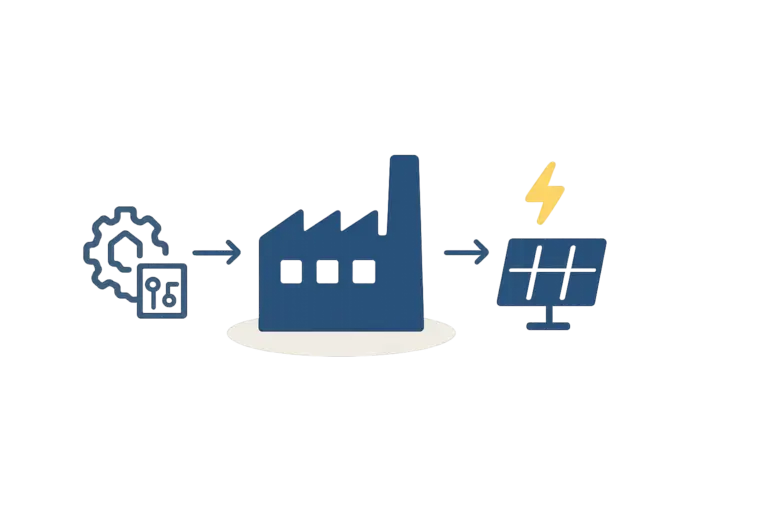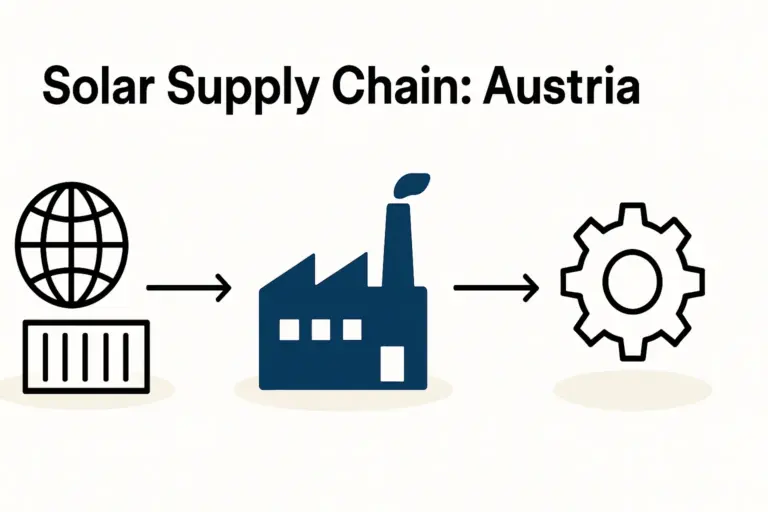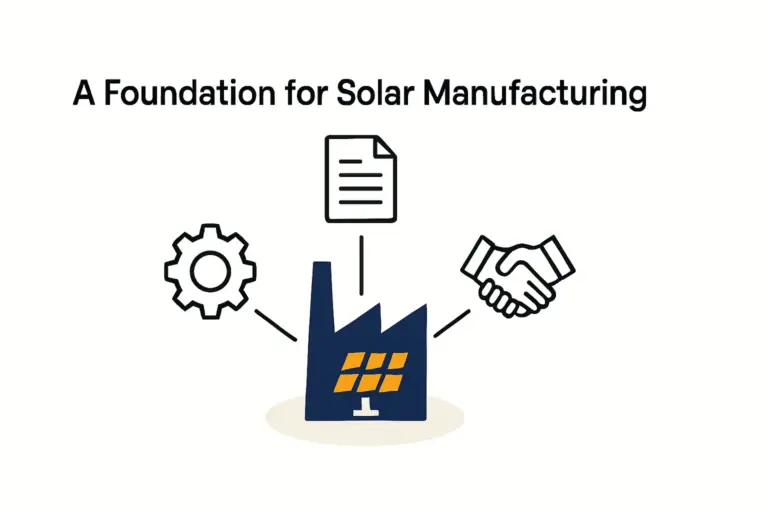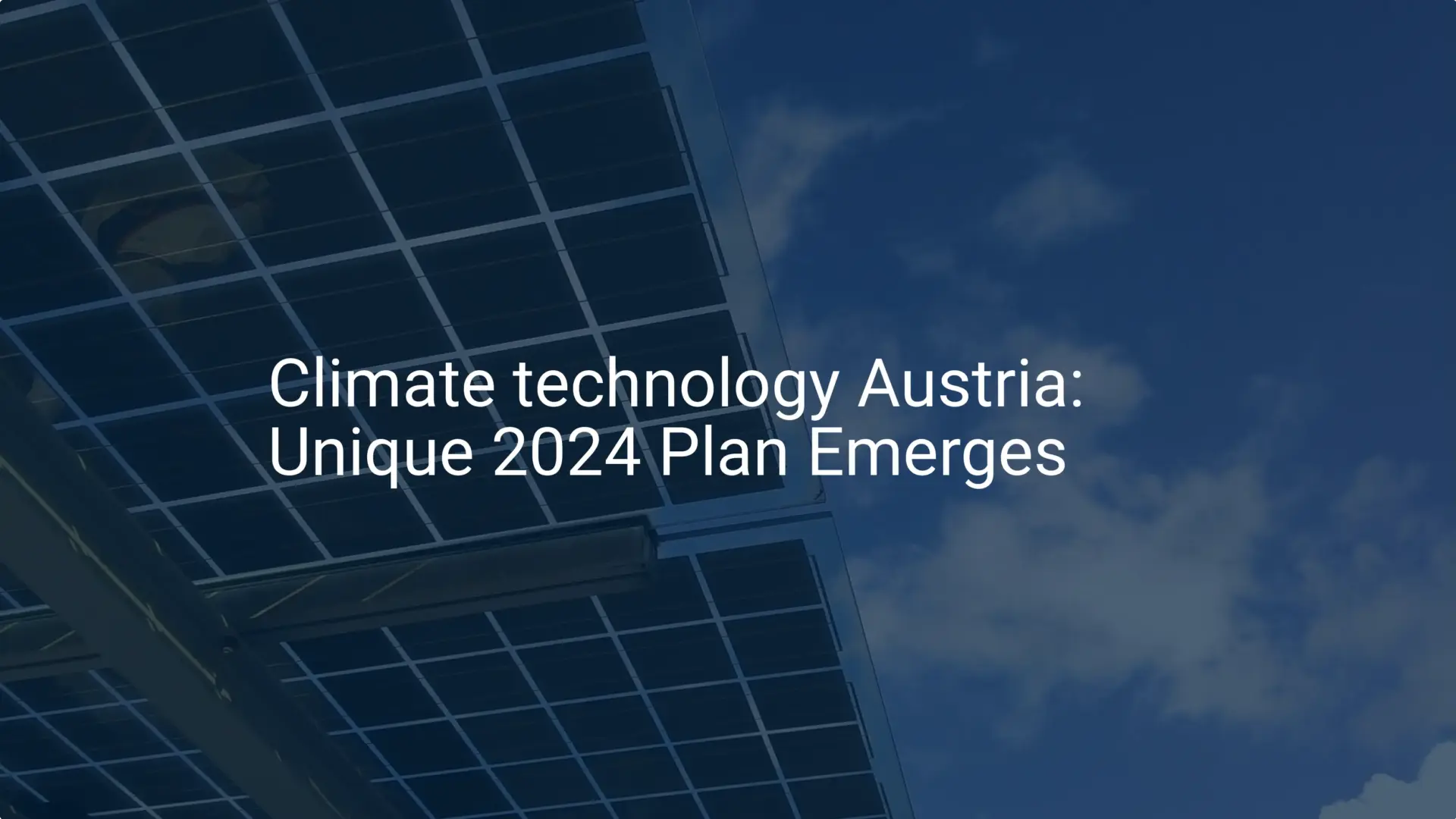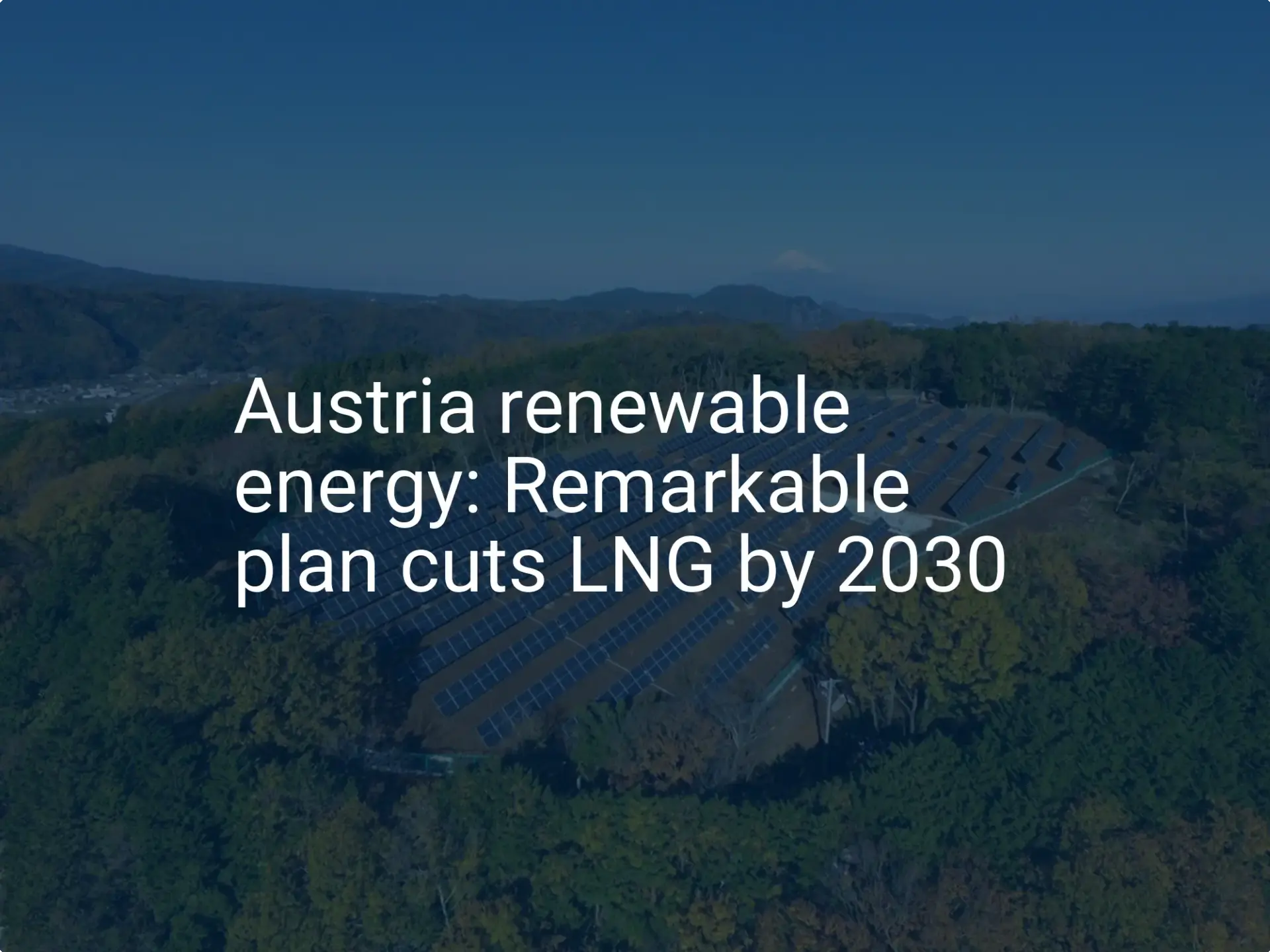Consider an entrepreneur with a successful background in logistics or construction looking to enter the European renewable energy market. They see Austria, with its ambitious goal of achieving 100% renewable electricity by 2030, as a prime location.
Government incentives are attractive, and the demand for high-quality, locally produced solar modules is growing. Yet, the path from identifying the opportunity to operating a profitable factory is unclear. How does one navigate the complex regulatory environment, secure financing from European institutions, and build a competitive operation in such a high-standard market?
This is a common scenario for business professionals exploring a move into solar manufacturing. The potential is undeniable, but the operational complexities require specialized expertise. This article outlines how structured consulting services provide the framework needed to launch a successful solar module factory in Austria.
Why Austria Presents a Unique Opportunity for Solar Manufacturing
Austria’s commitment to renewable energy, codified in policies like the Renewable Energy Expansion Act (EAG), provides a stable and supportive framework for green investments. This government backing, combined with a central European location, creates a strong business case.
Key advantages include:
-
Strong Market Demand: A growing domestic market and the high value placed on the ‘Made in Europe’ label provide a ready customer base.
-
Favorable Incentives: Government programs support investments in renewable energy production and manufacturing.
-
Logistical Hub: Austria’s location offers excellent access to major European markets, including Germany, Italy, and Eastern Europe.
-
Skilled Workforce: The country has a long tradition of high-tech engineering and a well-educated workforce.
However, these advantages come with significant challenges: stringent environmental regulations, high labor costs, and a competitive landscape that demands exceptional product quality and operational efficiency. Entering this market unprepared can lead to costly delays and strategic errors.
The Strategic Role of Consulting in a High-Standard Market
For an investor without a background in photovoltaics, navigating the Austrian market alone is a high-risk proposition. Expert consulting is not an expense but a critical investment in risk mitigation. It provides a proven methodology for translating a business vision into a fully operational and compliant manufacturing facility.
A comprehensive consulting engagement covers the entire project lifecycle, from initial concept to full-scale production.
Phase 1: Developing a Bankable Business Plan
The first step is creating a business plan that is ‘bankable’—meaning it is robust and credible enough to be presented to European investors, banks, and government agencies. This document must go far beyond a simple proposal.
A consultant-led business plan for the Austrian market typically includes:
-
Localized Market Analysis: An in-depth study of Austrian and EU market demand, competitor landscape, and pricing strategies for high-performance modules.
-
Supply Chain Strategy: Identification of reliable European suppliers for key materials like solar glass, aluminum frames, and junction boxes.
-
Technology and Production Roadmap: A detailed plan for the type of solar modules to be produced (e.g., TOPCon, HJT) and the specific machinery required.
A well-structured plan is the foundation of the entire project. For a deeper look into this process, explore our guide on Business Plan Development for a Solar Factory.
Phase 2: Precision Financial Modeling
A generic financial model is insufficient for securing funding in Europe. A detailed model tailored to Austria must precisely account for:
-
Local Cost Structures: Incorporating Austrian labor costs, social security contributions, corporate tax rates, and industrial electricity prices.
-
Incentive Integration: Modeling the financial impact of available federal and state-level investment grants and subsidies.
-
Sensitivity Analysis: Projecting financial performance under various scenarios, such as fluctuating raw material costs or changes in energy prices.
This level of detail demonstrates financial diligence and significantly increases the likelihood of securing project financing. A comprehensive overview of what this entails can be found in our article on Financial Modeling for Solar Module Manufacturing.
From Blueprint to Production: Executing the Plan with Expert Guidance
With a validated plan and secured financing, the project moves into the implementation phase, where local knowledge becomes even more critical.
Strategic Site Selection
Choosing a location involves more than simply leasing an industrial building. It requires a systematic evaluation of potential sites against key criteria. Expert consultants analyze factors such as:
-
Logistical Efficiency: Proximity to major transport routes (Autobahn, rail) for both incoming materials and outgoing products.
-
Infrastructure and Utilities: Ensuring the site has adequate access to high-voltage power, water, and other necessary utilities for manufacturing.
-
Zoning and Permitting: Verifying that local zoning laws permit industrial manufacturing and understanding the environmental assessment requirements.
-
Labor Availability: Assessing the local availability of skilled technicians and production workers.
This structured approach prevents costly mistakes, such as choosing a site that cannot support future expansion. To understand these factors better, consider reading about Selecting the Right Location for Your Solar Facility.
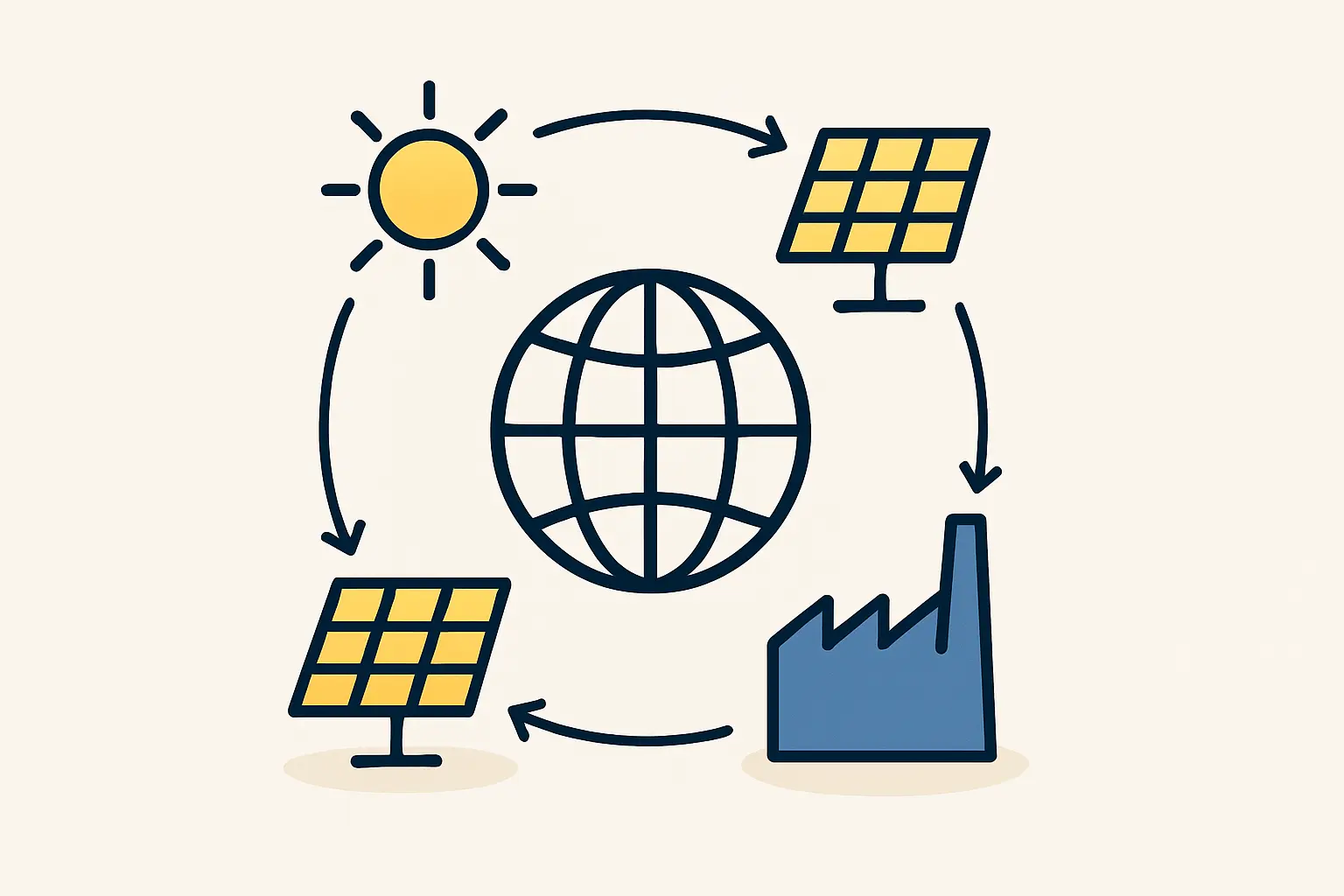
Navigating Regulatory and Permitting Landscapes
Austria’s regulatory framework is thorough, designed to ensure safety, environmental protection, and quality. A consulting team with experience in the region manages the entire administrative process, including:
-
Submitting applications for building and operational permits.
-
Liaising with local and federal authorities (Gemeinde, Bezirkshauptmannschaft).
-
Ensuring the facility design complies with all Austrian building codes and EU industrial standards.
This guidance accelerates the timeline and ensures full compliance from day one.
Operational Setup and Ramp-Up
The final stage involves bringing the factory to life. Based on experience from J.v.G. Technology GmbH turnkey projects across Europe, a structured ramp-up is essential. Consulting support in this phase covers:
-
Equipment Commissioning: Overseeing the installation and calibration of the production line.
-
Workforce Training: Developing training programs for local staff on machine operation and quality control protocols.
-
Process Optimization: Fine-tuning the production process to achieve target output, yield, and efficiency as quickly as possible.
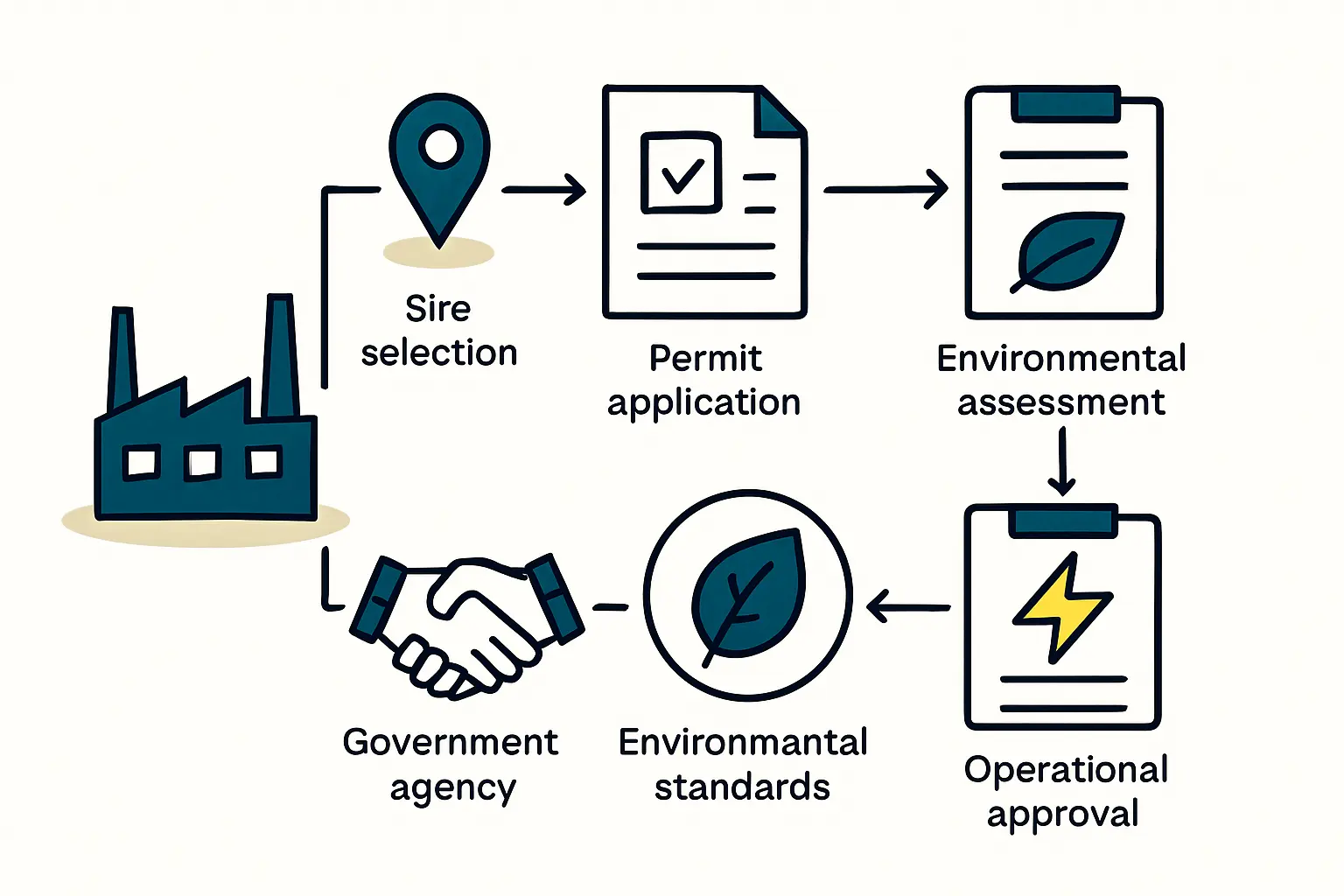
How pvknowhow.com Structures Consulting Engagements
The approach at pvknowhow.com is designed to be collaborative and transparent. Backed by the decades of engineering experience of J.v.G. Technology GmbH, a typical engagement follows a phased methodology:
-
Initial Feasibility Study: A preliminary assessment to validate the project’s viability and identify potential challenges specific to the client’s vision and the Austrian market.
-
Detailed Project Planning: The development of the bankable business plan, financial model, and initial engineering concepts.
-
Implementation Support: Hands-on assistance during site selection, permitting, construction, and the final production ramp-up.
This structured process empowers the investor’s team, transferring knowledge at every stage to build a self-sufficient and successful operation.
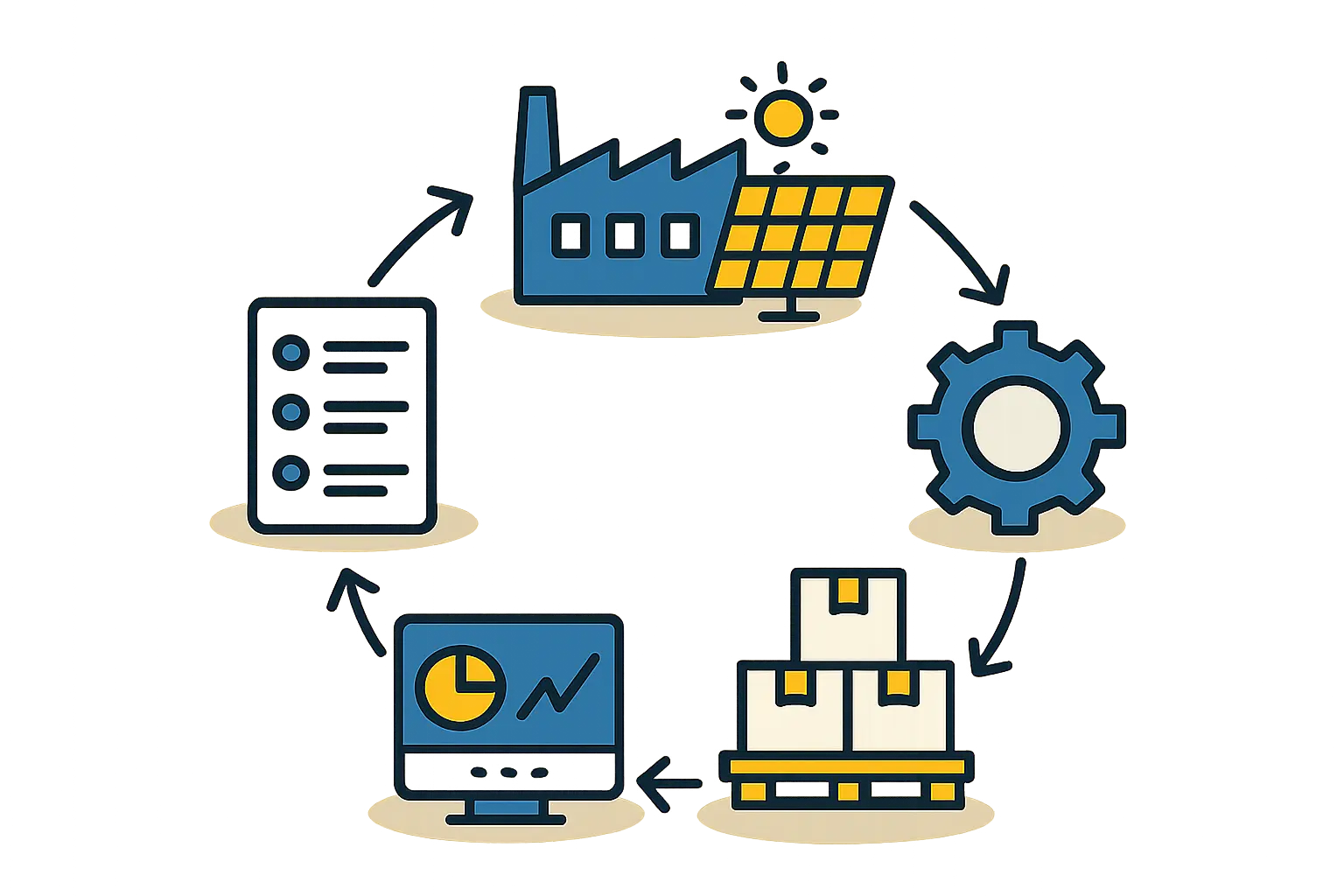
Frequently Asked Questions (FAQ)
What is the typical timeline for establishing a factory in Austria with consulting support?
With a structured approach, the timeline from project kickoff to the start of production is typically 12 to 18 months, depending on permitting and construction timelines.
How does consulting help secure financing from European banks?
Consultants prepare a highly detailed and credible business and financial plan designed to meet the rigorous due diligence standards of European financial institutions. This plan demonstrates that all technical, commercial, and regulatory risks have been thoroughly assessed and mitigated.
What are the primary differences between setting up a factory in Austria versus other regions?
Key differences include a stronger focus on automation due to higher labor costs, stricter environmental and building regulations, and a market that places a premium on product quality, certification, and traceability.
Is prior experience in solar manufacturing required to work with a consultant?
No. The core value of consulting is to bridge this knowledge gap. pvknowhow.com is specifically designed to guide entrepreneurs and business professionals from other industries through every step of the process.
What level of involvement is required from my own team during the consulting process?
The process is collaborative. The investor’s team provides strategic direction and makes key decisions, while the consulting team delivers the technical expertise, local knowledge, and project management framework.
Conclusion: Building a Foundation for Long-Term Success
Entering the Austrian solar manufacturing market is a significant strategic opportunity. However, the market’s high standards demand a professional and systematic approach. Engaging expert consultants provides the technical, financial, and regulatory guidance needed to navigate the complexities, de-risk the investment, and build a competitive and profitable enterprise. It transforms an ambitious idea into a tangible, operational reality.
For those seriously evaluating this venture, the logical next step is to gain a more detailed understanding of the market dynamics. Further exploration of Solar Manufacturing Opportunities in Austria can provide a comprehensive overview of the landscape.


